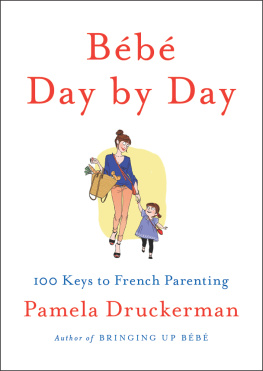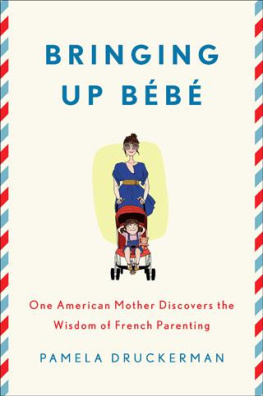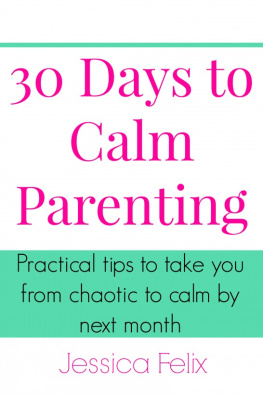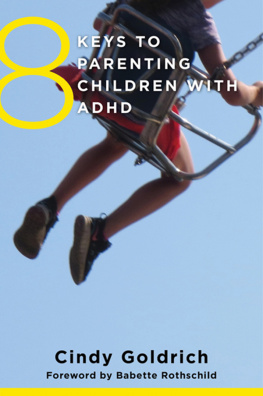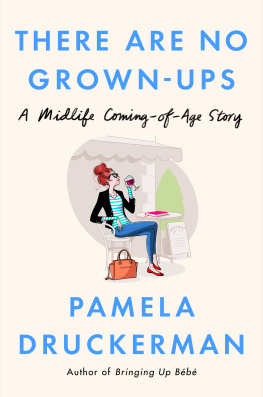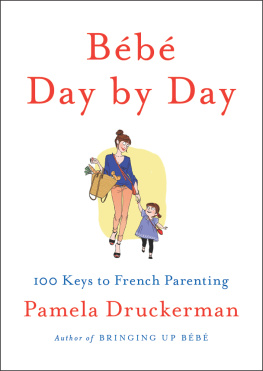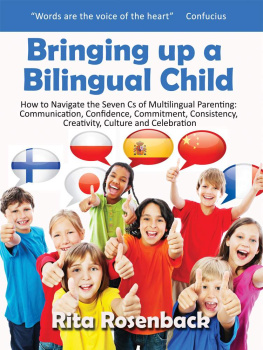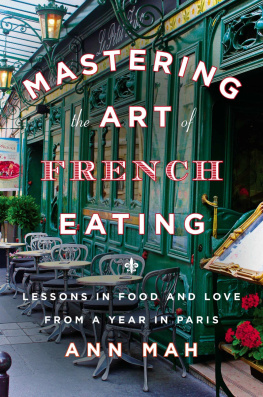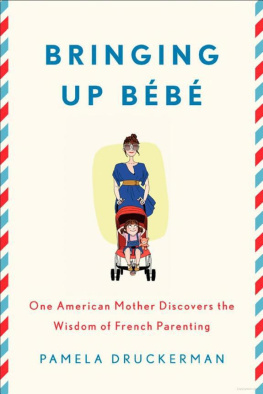Bb
DAY BY DAY
Also by the Author
Bringing Up Bb
Lust in Translation
Also by the Author
Bringing Up Bb
Lust in Translation

THE PENGUIN PRESS
Published by the Penguin Group
Penguin Group (USA) Inc., 375 Hudson Street,
New York, New York 10014, USA

USA / Canada / UK / Ireland / Australia / New Zealand / India /
South Africa / China
Penguin Books Ltd, Registered Offices:
80 Strand, London WC2R 0RL, England
For more information about the Penguin Group visit penguin.com
First published in 2013 by The Penguin Press,
a member of Penguin Group (USA) Inc.
Copyright Pamela Druckerman, 2013
All rights reserved
No part of this book may be reproduced, scanned, or distributed in any printed or electronic form without permission. Please do not participate in or encourage piracy of copyrighted materials in violation of the authors rights.
Purchase only authorized editions.
ISBN: 978-1-101-61699-4
Designed by Nicole LaRoche

For Simon and the individuals
Introduction
W hen I wrote a book about what Id learned raising three kids in France, I wasnt sure that anyone besides my mother would read it. Actually, I wasnt even convinced that she would make it all the way through (she tends to prefer fiction).
But to my surprise, many nonrelatives read the book too. For a while there were lots of angry articles about it. Who was I to insult American parentingif there really is such a thing? Surely there are lots of little French brats? Had I only researched rich Parisians? Was I extolling socialismor worsebottle feeding?
Im the sort of person who hears any criticism of herself and immediately thinks: thats so true! I fell into a funk. But then I started getting e-mails from regular American parents like me. (Ive posted many of these e-mails on my Web site.) I quickly cheered up. They didnt think Id falsely accused Americans of having a parenting problem. Like me, they were living that problem, and they were eager to hear about an alternative.
Some parents told me that the book validated what they had already been doing privatelyand often guiltily. Others said theyd tried the books methods on their kids, and that these really did work. (No one was more relieved to hear this than me.) Many asked for more tips and specifics, or for a version of the booksans my personal backstory and voyage of discoverythat they could give as a kind of manual to grandparents, partners, and babysitters.
This is that book. The 100 keys to French parenting are my attempt to distill the smartest and most salient principles Ive learned from French parents and experts. You dont have to live in Paris to apply them. You dont even have to like cheese. (Though you should have a look at the recipes at the end. Theyre a sample of what kids in French day cares eat, and theyre delicious for grown-ups too.)
I believe in all 100 keys. But theyre not my inventions or my personal proclamations. And theyre not all right for everyone. The French are very clear that every child is different and that you should break the rules sometimes. As you read the keys, youll start to notice that behind many of the individual tips are a few guiding principles. One of these principles was radical for me, as an American: If family life is centered entirely on children, its not good for anyone, not even for the kids.
I think American parents have already figured this out. By now weve seen the statistics showing that as this new intensive style of parenting has taken holdthe one thats popped up seemingly out of nowhere in the last twenty yearsmarital satisfaction has fallen. Parents are famously less happy than nonparents, and they become even less happy with each additional child. (Working mothers in Texas apparently prefer housework to child care.) The most depressing study of middle-class American families I read described how parents have gone from being authority figures to being valet[s] for the child. Given the amount of short-order cooking and shlepping that goes on, I would add personal chefs and chauffeurs too.
The clincher is that were starting to doubt whether this demanding way of parenting is even good for kids. Many of our good intentionsfrom the baby brain-building videos to the all-consuming quest for college admittancenow seem to be of questionable value. Some experts call the first generation of kids to graduate from this brand of child rearing teacups because theyre so fragile and warn that the way were defining success is making these children unhappy.
Obviously, French parents dont do everything right. And they dont all do the same things. The keys describe the national conventional wisdom. Its what French parenting books, magazines, and experts widely say that you should do; and what most of the middle-class parents I know actually do, or at least believe they should be doing. (A French friend of mine said she planned to give a copy to her brother, so he could become more French.)
A lot of French wisdom feels like common sense. Ive gotten letters from readers describing the overlaps between French parenting and Montessori, or the teachings of a Hungarian-born woman named Magda Gerber. Others assured me its what we Americans did before Reaganomics, the psychotherapy boom, and that study saying that poor kids dont hear enough words when theyre little. (Lets just say that the American upper-middle class massively overcompensated.)
Some French ideas have a power and elegance thats all their own. French parents to a great extent believe that babies are rational, that you should combine a little bit of strictness with a lot of freedom, and that you should listen carefully to children but not do everything they say. Their ability to move kids beyond kid foods is remarkable. Above all, the French think that the best parenting happens when youre calm. Whats really neat is that, in France, you have an entire nation, in real time, trying to follow these principles. Its like a country-size control group. Come visit. Youll be amazed.
The main reason why French parenting is relevant to us now is that its a kind of mirror image of whats been happening in America. We tend to think we should teach kids cognitive skills, such as reading, as soon as possible. They focus on soft skills like socializing and empathy in the early years. We want kids to be stimulated a lot; they think downtime is just as crucial. We often hesitate to frustrate a child; they think a child who cant cope with frustration will grow up miserable. Were focused on the outcomes of parenting; they think the quality of the eighteen years or so you spend living together counts for a lot too. We tend to think long-term interrupted sleep, routine tantrums, picky eating, and constant interruptions are mostly inevitable when you have little kids. They believe these things areplease imagine me saying this in a French accentimpossible.
Im a journalist, not a parenting expert. So what really sold me on the French principles was the data. Many things that French parents do by intuition, tradition, or trial and error are exactly what the latest American research recommends. The French take for granted that you can teach little babies how to sleep through the night; that patience can be learned; that too much praise can be damaging for children; that you should become attuned to a babys rhythms; that toddlers dont need flash cards; that tasting .)

